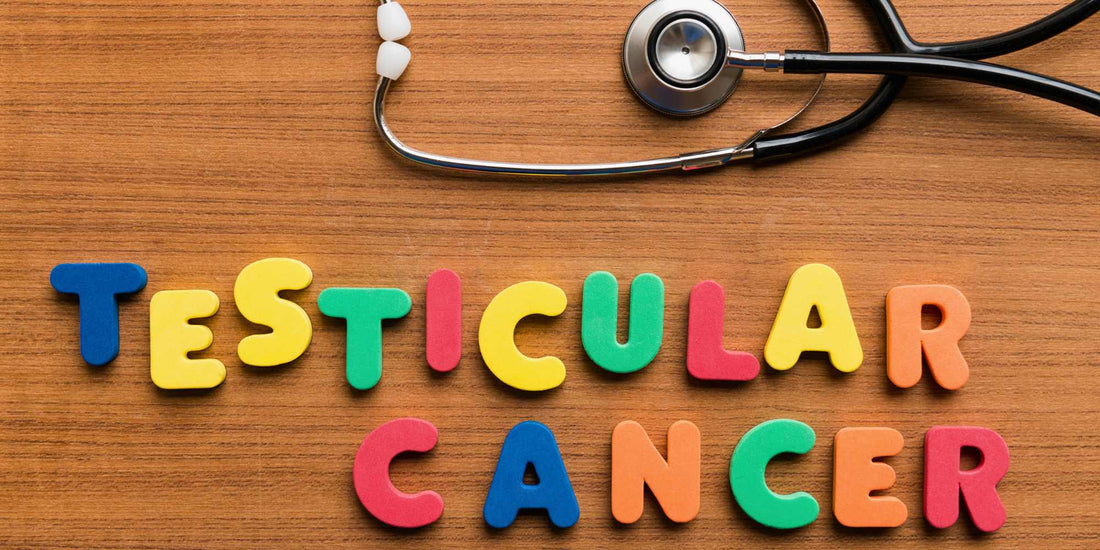
Understanding Testicular Cancer
Testicular cancer. Yep, we’re diving into that territory today. Now, before you close this tab faster than a pop-up ad, hear me out. This isn’t your typical snooze-fest medical lecture. We're talking about something serious, but we’ll keep it light, engaging, and informative.
What Exactly is Testicular Cancer?
First things first, let's clarify what we're dealing with here. Testicular cancer, simply put, is a type of cancer that begins in the testicles, those two egg-shaped organs below the belt that play a crucial role in reproduction. Now, before you start crossing your legs uncomfortably, remember, that knowledge is power. And understanding what's going on down there can literally be a lifesaver.
Signs and Symptoms: The Red Flags You Shouldn't Ignore
Alright, let's get serious for a moment. How do you know if you're dealing with more than just a minor discomfort down there? Well, your body has ways of sending out distress signals, and it's up to you to pay attention.
Keep an eye out for things like…
- A painless lump or swelling on either testicle, which, if detected early, may resemble the size of a pea or marble but can grow significantly larger.
- Discomfort, pain, or numbness in a testicle or the scrotum, sometimes accompanied by swelling.
- Changes in the texture or size of a testicle, are often accompanied by a sensation of heaviness in the scrotum. This may involve one testicle feeling firmer than the other or alterations in size.
- Dull ache in the lower abdomen or groin region.
- Sudden accumulation of fluid in the scrotum.
- Breast tenderness or enlargement, though rare, as certain testicular tumors produce hormones leading to a condition known as gynecomastia.
- Symptoms such as lower back pain, chest pain, shortness of breath, and coughing up bloody sputum or phlegm may indicate advanced-stage testicular cancer.
- Swelling in one or both legs or shortness of breath, indicative of a blood clot, can also be linked to testicular cancer. Deep venous thrombosis (DVT) in a major vein or pulmonary embolism in a lung artery may be the first signs of testicular cancer in some young or middle-aged individuals.
How Fatal is Testicular Cancer?
Testicular cancer, while serious, is fortunately not as fatal as some other forms of cancer. According to the American Cancer Society, around 9,760 new cases of testicular cancer are diagnosed each year in the United States. Sadly, about 500 of these cases result in death.
The good news is that testicular cancer is highly treatable, especially when detected early. The average age of diagnosis is around 33, and with advancements in medical technology and treatment options, the survival rates are quite high. In fact, the lifetime risk of dying from testicular cancer is remarkably low, estimated at about 1 in 5,000.
How Does Testicular Cancer Kill You?
Testicular cancer progresses through stages, from confined to the testicle (stage 0) to spread to other organs like the lungs or brain (stage 4). In advanced stages, the cancer can be fatal due to several factors. Metastasis occurs when cancer cells spread to vital organs such as the lungs, liver, or brain, impairing their function and leading to severe complications. Additionally, as the cancer progresses, it can cause organ failure, such as respiratory failure if it spreads to the lungs, or liver failure if it affects the liver or kidneys, ultimately posing a significant risk to life.
What Age is Testicular Cancer Common?
Testicular cancer stands out as the most prevalent cancer among males aged 14 to 44, with its occurrence notably increasing in Western nations over the last twenty years. The emergence of this cancer is influenced by a combination of genetic and environmental factors, with cryptorchidism representing the most prevalent risk factor associated with its development.
How Long Can You Live With Testicular Cancer Without Treatment?
Without treatment, individuals diagnosed with testicular cancer may have a life expectancy of around five years, although this can vary depending on factors such as the stage of the cancer and overall health.
While some cases of testicular cancer may progress slowly, allowing individuals to live for several years without treatment, it's important to note that untreated cancer can spread to other parts of the body, leading to potentially life-threatening complications. Therefore, while a five-year life expectancy is possible without treatment, it's crucial for individuals to seek medical attention promptly to improve their chances of survival and long-term outcomes. Early detection and timely treatment are key to managing testicular cancer effectively.
And there you have it, folks – the lowdown on testicular cancer. Remember, knowledge is power, so don’t be afraid to stay informed and keep an eye on your boys downstairs. If you notice anything out of the ordinary, don’t wait – talk to your doctor. While we've got your attention, remember that taking care of your health is just as important as taking care of your style. So, after reading up on testicular cancer, why not treat yourself to some comfortable and eco-friendly men's bamboo underwear? Your boys downstairs will thank you!
Please note that the content provided in this blog post is intended for entertainment and informational purposes only. It should not be considered medical advice or a substitute for professional medical consultation, diagnosis, or treatment. Always seek the advice of your physician or other qualified health provider with any questions you may have regarding a medical condition. Never disregard professional medical advice or delay in seeking it because of something you have read on this blog.









